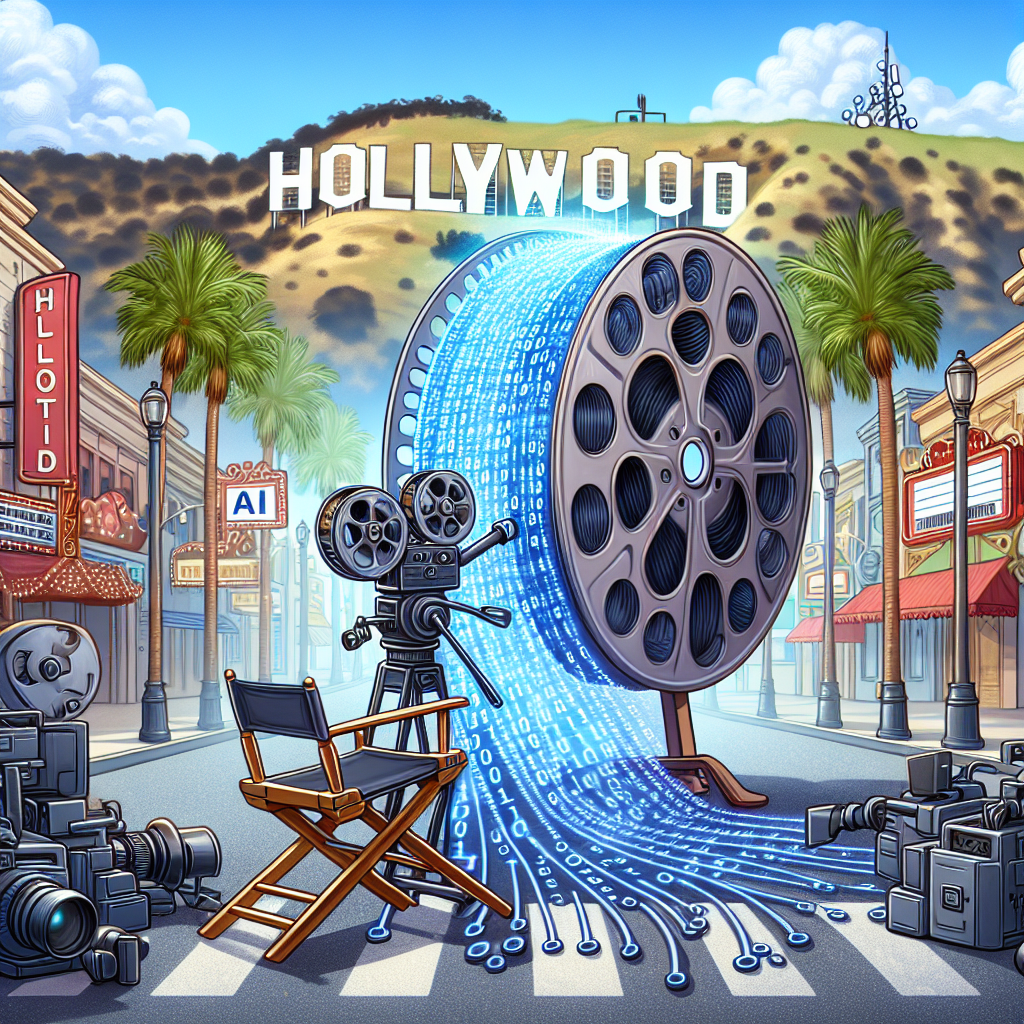Artificial Intelligence (AI) has become a prominent theme in Hollywood films over the years, with movies like “Ex Machina,” “Her,” and “Blade Runner” exploring the implications of AI on society and the human experience. As technology continues to advance, the portrayal of AI in film has evolved, reflecting our changing attitudes and fears about this rapidly developing technology. In this article, we will explore the impact of AI on Hollywood and how it has shaped our perceptions of artificial intelligence.
The Evolution of AI in Film
AI has been a popular subject in science fiction films for decades, with early examples like “Metropolis” (1927) and “Forbidden Planet” (1956) featuring robots and artificial beings. However, it wasn’t until the 1980s that AI began to be portrayed as a more complex and nuanced topic in Hollywood films. Movies like “Blade Runner” (1982) and “WarGames” (1983) introduced audiences to the idea of AI as sentient beings capable of emotions and self-awareness.
In the 21st century, AI has become an even more prominent theme in Hollywood films, with movies like “Ex Machina” (2014) and “Her” (2013) exploring the relationships between humans and AI. These films delve into questions of ethics, morality, and the nature of consciousness, challenging audiences to reconsider their assumptions about what it means to be human.
The Impact of AI on Hollywood
The portrayal of AI in film has had a significant impact on how audiences perceive this technology. Hollywood has played a crucial role in shaping public attitudes towards AI, both by fueling fears of a dystopian future where AI takes over and by inspiring awe at the possibilities of this technology.
One of the key ways in which AI has influenced Hollywood is through its representation in popular culture. Movies like “The Terminator” (1984) and “The Matrix” (1999) have become iconic examples of AI gone wrong, with killer robots and artificial beings threatening to destroy humanity. These films have tapped into our deepest fears about the potential dangers of AI, leading to a widespread skepticism about the technology.
On the other hand, movies like “Wall-E” (2008) and “AI: Artificial Intelligence” (2001) have portrayed AI in a more positive light, highlighting the potential for AI to help humanity and improve our lives. These films have sparked optimism about the possibilities of AI, inspiring audiences to imagine a future where technology enhances rather than threatens our existence.
Overall, the impact of AI on Hollywood has been profound, shaping the way we think about this technology and its implications for society. By exploring the complexities of AI in film, Hollywood has forced us to confront our own fears and hopes about the future of artificial intelligence.
FAQs about AI in Film
Q: What are some of the most iconic AI films?
A: Some of the most iconic AI films include “Blade Runner,” “Ex Machina,” “Her,” “The Terminator,” “The Matrix,” and “AI: Artificial Intelligence.”
Q: How has the portrayal of AI in film evolved over the years?
A: The portrayal of AI in film has evolved from simple robots and artificial beings to more complex and nuanced depictions of AI as sentient beings capable of emotions and self-awareness.
Q: What are some common themes in AI films?
A: Common themes in AI films include questions of ethics, morality, the nature of consciousness, and the relationships between humans and AI.
Q: How has Hollywood influenced public attitudes towards AI?
A: Hollywood has played a significant role in shaping public attitudes towards AI by fueling fears of a dystopian future where AI takes over and by inspiring awe at the possibilities of this technology.
Q: What are some of the positive and negative portrayals of AI in film?
A: Positive portrayals of AI in film include movies like “Wall-E” and “AI: Artificial Intelligence,” which highlight the potential for AI to help humanity. Negative portrayals include movies like “The Terminator” and “The Matrix,” which depict AI as a threat to humanity.
In conclusion, AI has had a profound impact on Hollywood, shaping the way we think about this technology and its implications for society. By exploring the complexities of AI in film, Hollywood has challenged us to reconsider our assumptions about artificial intelligence and its potential impact on our lives. As technology continues to advance, the portrayal of AI in film will likely continue to evolve, reflecting our changing attitudes and fears about this rapidly developing technology.

